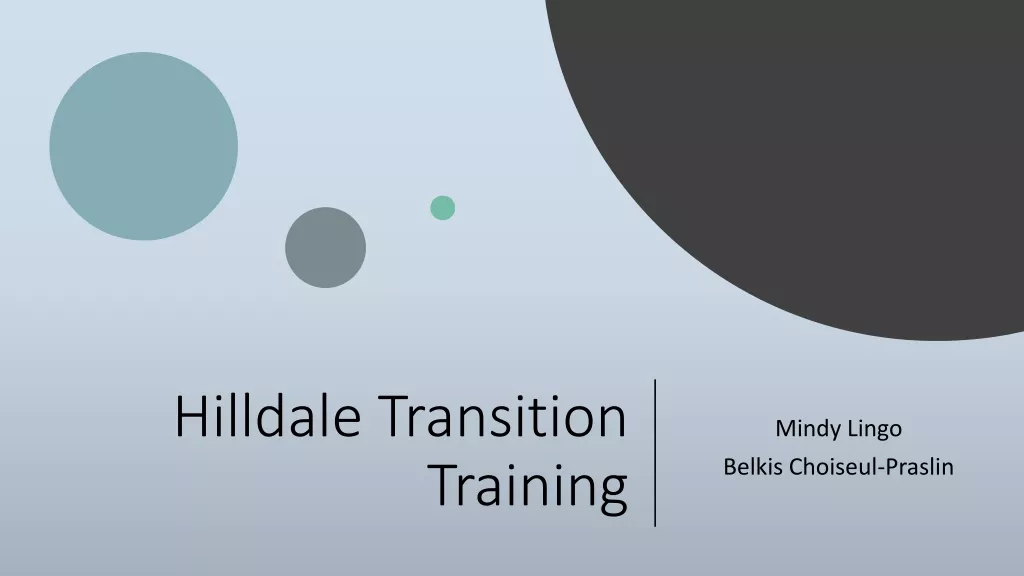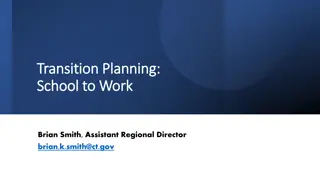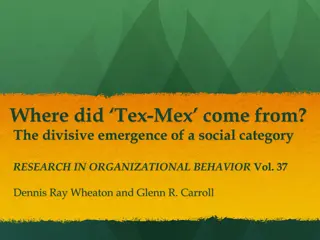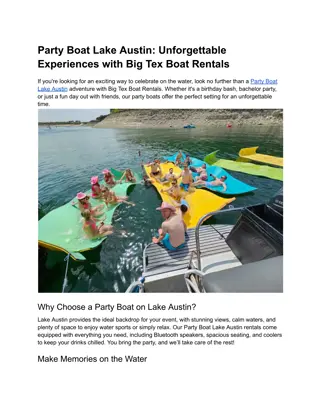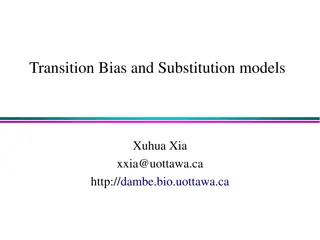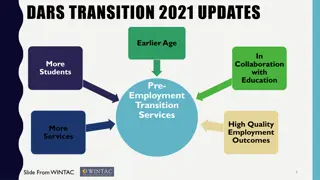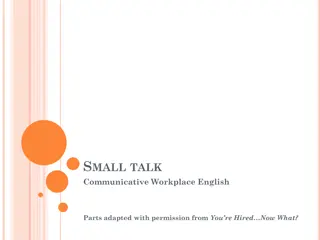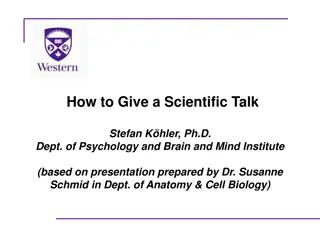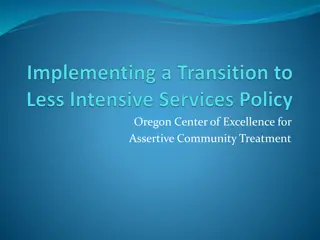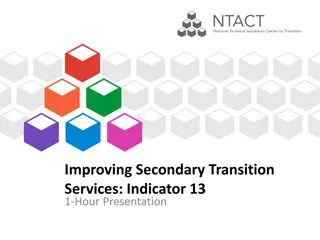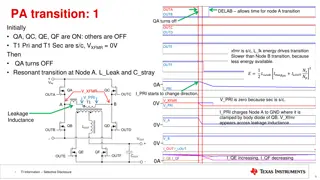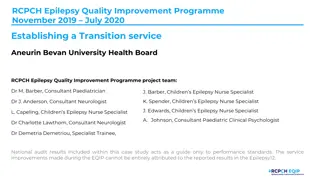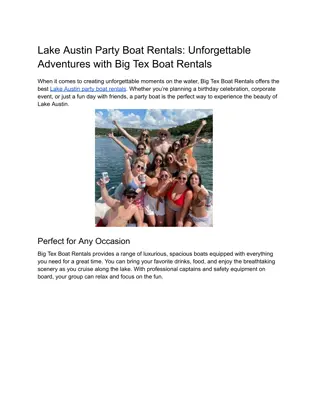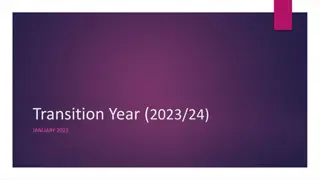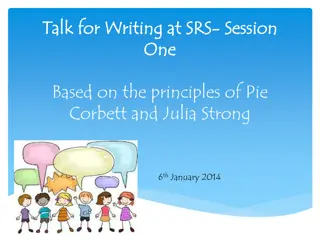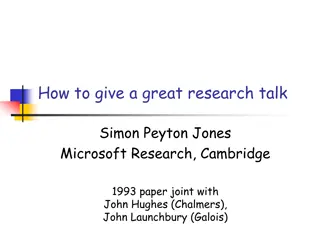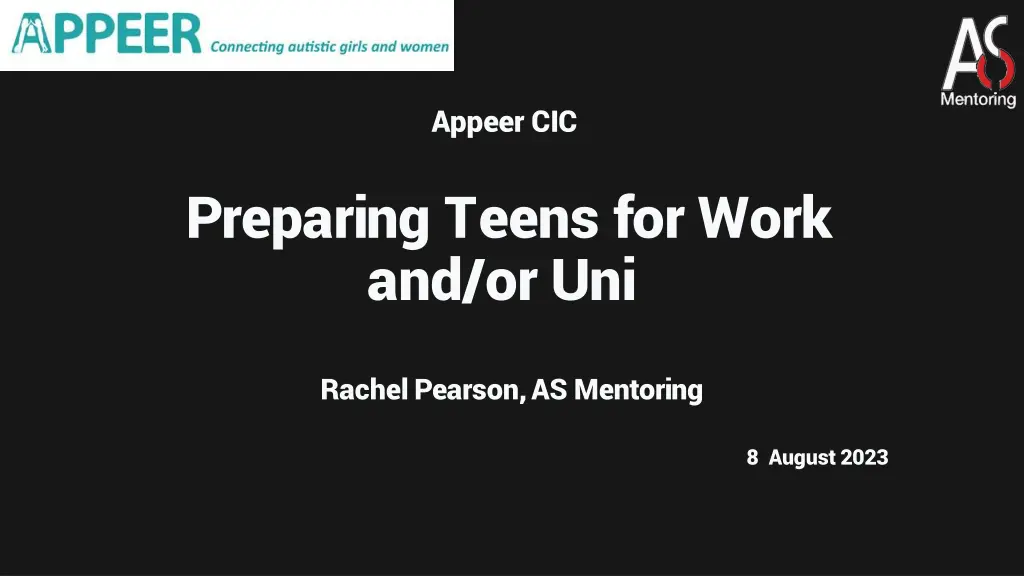
Empowering Autistic Adults in Work and Education
Explore the challenges and solutions to transitioning autistic individuals into the workforce and higher education, with a focus on parental roles, available support, and alternative pathways. Discover key statistics and practical advice for achieving social inclusion and employment success.
Download Presentation

Please find below an Image/Link to download the presentation.
The content on the website is provided AS IS for your information and personal use only. It may not be sold, licensed, or shared on other websites without obtaining consent from the author. If you encounter any issues during the download, it is possible that the publisher has removed the file from their server.
You are allowed to download the files provided on this website for personal or commercial use, subject to the condition that they are used lawfully. All files are the property of their respective owners.
The content on the website is provided AS IS for your information and personal use only. It may not be sold, licensed, or shared on other websites without obtaining consent from the author.
E N D
Presentation Transcript
Appeer CIC Preparing Teens for Work and/or Uni Rachel Pearson, AS Mentoring 8 August 2023
Introductions AS Mentoring Support ND adults autism, ADHD, dyspraxia To support our clients to achieve their potential as individuals, and to facilitate their social inclusion through work; (sometimes return to education) Work holistically - Encompasses issues that affect people at work LIFE! 180 clients jobseekers; in work (range of roles; sectors) Me Employment Consultant with ASM (formerly NAS and delivered Student Support) Parent of 3 girls - 2 ND Director of Appeer
Aims of Session Explore: Routes into work Considerations for university Share knowledge/experience around: What role parents can (and roles you shouldn t) play Advise on and signpost to: What support is available?
Structure of Session 1. Work 2. Break 10 mins 3. Uni 4. Questions 5. (If time sharing a diagnosis)
The context in numbers 1.1% of UK population has an autism diagnosis and rising. (NAS, 2022) 22% of autistic adults in any form of paid work (ONS, 2021) 16% of autistic adults in full time paid employment Autistic graduates have the highest rate of unemployment compared to any other single disability group 17.5% of graduates unemployed/voluntary work (AGCAS Destination of Disabled Graduates, 2022) .Autism Employment Review Buckland Review 2023
The Problem Transitions for autistic people are hard The transitions between education and work/HE are huge They come at exactly the same time as the transition to adulthood parental support stripped away; weight of expectation is huge There is very limited support Result: A Perfect Storm
What are the alternative pathways? Work Speculative applications Roles ring-fenced for autistic adults Volunteering, work trials Apprenticeship degree apprenticeship Higher Education Foundation courses Full time Part time Open University
Barriers to Work for autistic people Confidence -Most common reason for not being in work or looking for work is lack of confidence (23% of job survey respondents in NAS Survey, 2016) Recruitment process geared around communication Finding the right role - Square holes for square pegs Lack of work experience Understanding of autism and understanding how it impacts in the workplace employer and prospective employee
Case Studies George: Age 39 Frank: Age 20 Left Uni at 20 as too anxious to continue with IT degree. Spent 16 years as self-employed part-time gardener, after other casual jobs Started pre-employment mentoring support: worked on confidence, finding focus; exploring pathways back into IT Successfully applied for 24 mth IT Software Developer apprenticeship, reasonable adjustments at interview Specialist mentoring workplace support (outside of work) funded by Access to Work; accessing psychological therapies, funded by employer following Occupational Health assessment. Left school with 4 GCSEs (not English) Family friend found him warehouse work. Not suited to environment: wasn t able to focus in role; always late facing disciplinary process Mentoring support to explore skills, autism impact Work shadow day organised to visualise the role; supported direct approach to employers Found paid employment as Trainee Groundsman. Workplace support funded by Access to Work. Now part qualified tree surgeon undertaking specialist courses with adjustments Working and studying independently as equipped with self advocacy skills
Pathways to work Full time paid employment Part time paid employment Short term paid role(temporary) Work Placement usually unpaid; PT or FT Work Experience- unpaid; PT or FT Expectations Volunteering
Autistic/ND workers usually need a Communication Bridge Employee Employer ND Understanding
Support is available Pre-employment support explicit teaching work prep; social skills for workplace; Experience of the workplace: work shadowing; work experience; placements; internships Understanding your skills/support profile (typically spiky) what to share; support needs Job searching/careers guidance and advice Navigating the recruitment process guidance on reasonable adjustments; support at interview; disclosing a diagnosis; work trials In work support reasonable adjustments at work; autism awareness training; specialist workplace support
Sources of Support for Work Disability Employment Advisers (Job Centre) Access to Work (DWP) Surrey Choices Employability ESRA (East Surrey) Richmond Fellowship SLLP Supported Employment Providers DWP Autism Specialist Support Providers Disability Charities AS Mentoring Independent Mentors EDGE Consultancy Auticon Ambitious About Autism Ambitious About Autism Autism Forward NAS
Reasonable Adjustments Equality Act (2010) : To make Reasonable Adjustments, in order to remove/ minimize the barriers/ disadvantages faced by individual disabled employees Barrier Removed EQUALITY EQUITY NO ADJUSTMENT REQUIRED For ND people adjustments are often very minor but not always obvious either to employer or employee - e.g. change of desk position, change of working hours to avoid rush-hour travel, wearing noise- cancelling headphones at work, reserving a favourite hot lunch at the canteen(!)
Adjustment possibilities Physical mobility and access adjustments that make workspaces and tasks accessible to people of all physical abilities. Social adjustments that reduce difficulties in social situations that neurodivergent people may experience. Cognitive adjustments that support the difficulties with processing times, memory and organisation skills. Sensory adjustments that recognise the different sensory stimuli in the workplace including sound, vision, touch, taste and smell. Mental health and wellbeing adjustments that facilitate the mental health and wellbeing needs of neurodivergent employees. Skill and experience adjustments that recognise different skills/experience and previous disadvantage by the education system/prior work experiences. Source: DARE REPORT ON ADJUSTMENTS January 2020 (v1.0.7) Discover Autism Research & Employment
Getting workplace adjustments in place 87%Of participants surveyed felt that adjustments would make a critical difference to their performance at work 53% Yet just over half of participants felt unable to ask for adjustments, were refused adjustments, or adjustments requested were poorly implemented 15% A small minority of participants reported that they were comfortable openly discussing adjustments within their organisation Source: Neurodiversity Employment Survey 2019, CRAE.
Uni good choice?..reality check Uni is not a key to employment Precluded from taking a related apprenticeship ASC graduates often have no work experience Expectations around getting a graduate job Graduate training programmes are not always suitable for autistic employees not always for specialists; generalists
University Considerations Course Type Support Provision Duration Considerations Uni Type: City/Campus Assessment Location
What Support Is Available at Uni? Lots! Good news Few barriers to eligibility Limitations of parental support
Disabled Students Allowance: 2023-24 Full-time undergraduate & postgraduate students can get up to 26,291 a year for support. Non means tested; non-contributory (exception:computer) It doesn t need to be paid back (not a loan) The allowance funds a range of different types of support
Disabled Students Allowance Process 2. 3. Complete online application form for indicate that you want to apply for DSA. Apply for Student Finance (SFE) 1. Complete Apply for DSA Research universities and courses. UCAS process Research & Select Apply Start Uni! ASAP.SFE will send form. Submit evidence of disability.You do not have to wait until you have a confirmed place. Can apply at any stage of your course. 4. 6. Attendance at an assessment meeting Conducted by Needs Assessment Centre) Report produced by assessor. Can review before finalised. 5. Disability Needs Assessme nt Finalised report sent to SFE and the Disability Support Team at Uni (if finalised)* SFE will write to you to confirm the support they will fund. Arrange Support Needs Agreed
Types of Support at Uni Non Medical Helpers Assistive Technology: Brain in Hand Software Dragon Text to speech Others: Find my flow essay planning; Read; Grammarly; HelperBird Other support Printer allowance Audio equipment Contribution to laptop Reasonable Adjustments For course: extra time; prompts; exam reader For living: accommodation; access to quiet spaces https://www.disabilityrightsuk.org/adjustments-disabled-students
Non-Medical Helpers Specialist Mentor Study Skills Assistant Study Assistant Others: for co-existing conditions
University Reasonable Adjustments Preparation for changes of routine, e.g. around deadlines and exam time Use of a separate room with an invigilator Exam paper written on plain paper in one colour Use of a prompter to keep you focused during exams Word processing facilities if motor control is impaired Use of peers, volunteers or a buddy system. Provision of quiet room if there are sensory issues. Allowing students to present to academic staff or make a video presentation instead of written assignments. Access to mentoring and study skills support Extension on library loans Immediate access to pastoral support, e.g. particular staff member you can go to with any concern Dedicated support worker Staff to have awareness training Specialist tuition support, e.g. language skills or structuring work Special photocopying arrangements Digital recorder for recording lectures, notes, etc Extra time to read, understand, and produce answers in exams Alternative ways of completing teamwork Support worker to act as a mediator for teamwork To have the same information conveyed in more than one way, e.g. verbally and in writing
Some common issues: Academics Managing time/prioritising/structuring Managing relationships with academic staff Initiating meetings assertiveness; unpredictability Group work Blended learning online/offline (conduct of other students) Understanding and negotiating the bureaucracy: process/procedures when things go wrong
Some common issues: other Finding way around orienting campus/buildings Social isolation Managing relationships with peers Accessing clubs/societies/events Sensory overload lecture theatres; societies; Freshers; Careers Fairs
Thank you www.appeer.org.uk Rachel Pearson rachel.pearson@asmentoring.co.uk

